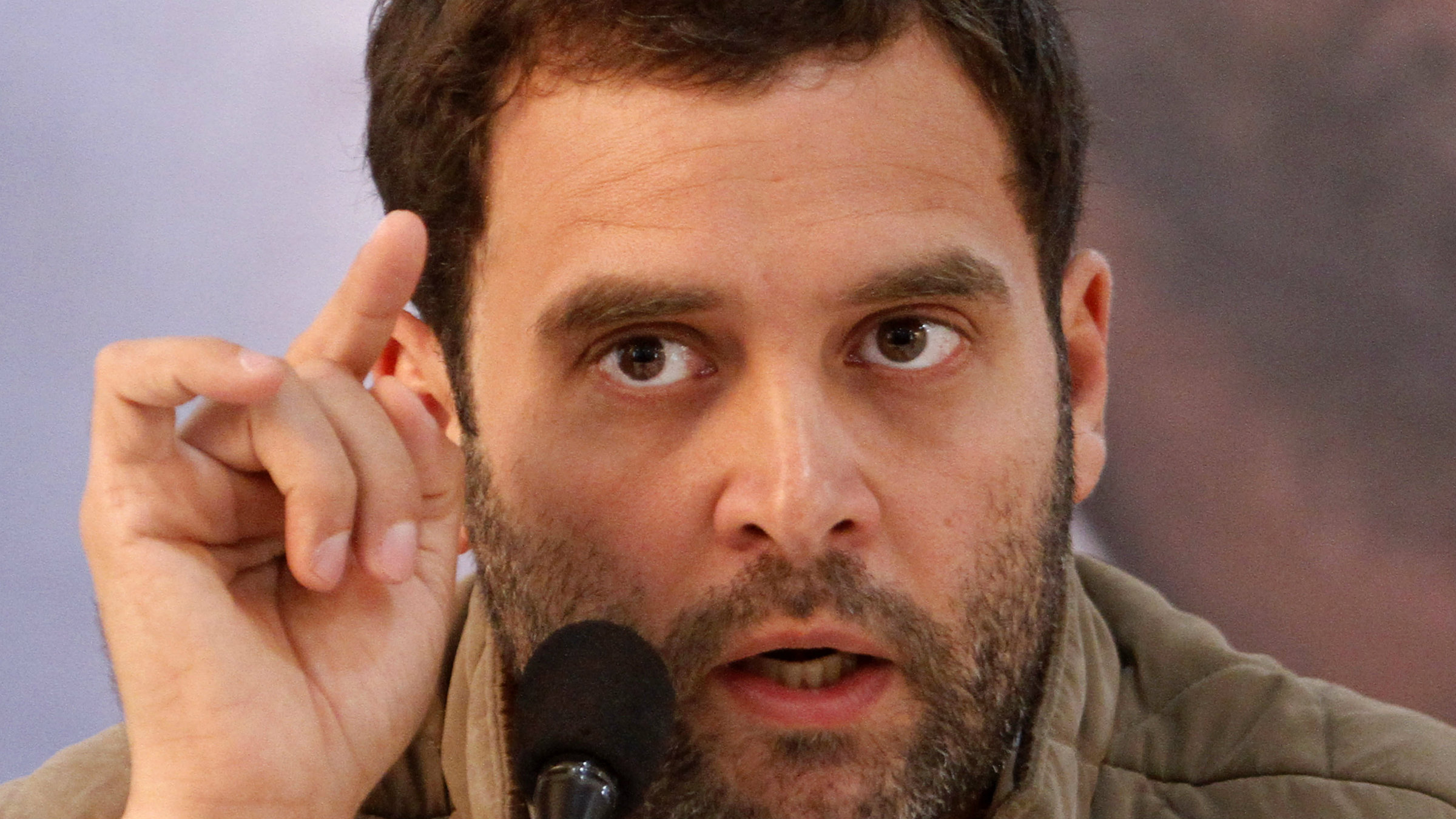


In a scathing attack on India's use of electronic voting machines, Congress leader Rahul Gandhi expressed serious concerns about the integrity and transparency of the electoral process. He cited reports of alleged EVM manipulation and a post by tech mogul Elon Musk advocating for their elimination. Opposition parties have also consistently raised issues with EVMs, calling for a full count of VVPAT slips, but their demands have been denied.
EVM and VVPAT: Scrutiny and Concerns over Electoral Transparency in India
Background and Context
Electronic Voting Machines (EVMs) have been used in India since 2000 to replace traditional paper ballots. They are designed to record votes electronically, eliminating the need for manual counting and reducing the likelihood of human errors. However, the use of EVMs has been met with controversy and concerns about their reliability and transparency.
Rahul Gandhi's Attack
In recent months, Congress leader Rahul Gandhi has launched a scathing attack on India's use of EVMs. He has expressed serious concerns about the integrity and transparency of the electoral process, citing reports of alleged EVM manipulation and a post by tech mogul Elon Musk advocating for their elimination.
Opposition parties have also consistently raised issues with EVMs, calling for a full count of Voter-Verified Paper Audit Trail (VVPAT) slips. VVPAT slips are paper receipts that are printed after each vote is cast, allowing voters to verify that their vote has been recorded correctly.
Government Response
The Election Commission of India (ECI), which is responsible for conducting elections in India, has defended the use of EVMs. The ECI has stated that EVMs are "tamper-proof" and that there has been no evidence of any widespread manipulation.
However, the ECI's assurances have not fully addressed the concerns raised by opposition parties and critics. Some critics have argued that the ECI has not been transparent enough in its handling of EVM-related issues and that it has not adequately investigated allegations of manipulation.
Top 5 FAQs on EVMs and VVPAT
Q1: What are the advantages of using EVMs?
A: EVMs are designed to be more efficient and accurate than paper ballots. They reduce the likelihood of human errors and eliminate the need for manual counting. They also make it easier for voters with disabilities to cast their ballots.
Q2: What are the concerns about EVMs?
A: Concerns about EVMs include the possibility of manipulation, hacking, and malfunctioning. Critics have also raised concerns about the transparency of the electoral process and the lack of independent oversight of EVM production and maintenance.
Q3: What is VVPAT?
A: VVPAT stands for Voter-Verified Paper Audit Trail. It is a system that links EVMs with paper receipts. After each vote is cast, a VVPAT slip is printed and displayed to the voter, who can verify that their vote has been recorded correctly.
Q4: What are the concerns about VVPAT?
A: Concerns about VVPAT include the possibility of tampering, coercion, and intimidation. Critics have also raised concerns about the storage and retrieval of VVPAT slips and the lack of a full count of slips during election audits.
Q5: What is the current status of EVM and VVPAT in India?
A: EVMs continue to be used in India for all major elections. VVPAT is also mandated by the ECI for use in all polling stations. However, the debate over EVMs and VVPAT is ongoing, with opposition parties continuing to raise concerns about their reliability and transparency.

Following his party's disappointing performance in the recent Bihar Assembly election, politician Prashant Kishor has raised concerns about the voting results, stating that they did not align with the public sentiment he witnessed during his campaign. Despite this setback, Kishor remains determined to build a stronger political organization and continue engaging with the public in preparation for future elections. He also addressed criticisms of his role as an election strategist, reminding critics that one loss does not define his political future.

Indian government under the leadership of Prime Minister Narendra Modi has introduced four new labour codes aimed at protecting the rights and well-being of 40 crore workers across the country. Union Minister Mansukh Mandaviya has hailed the move as transformative and a major step towards ensuring the welfare of the workforce. The new codes bring in much-needed changes such as formalisation and transparency through appointment letters, and universal social security coverage for all workers including gig and platform workers.

In Uttar Pradesh's Lakhimpur Kheri, a police constable is in hot water for allegedly forging a court order to clear his name in an old case, with the intention of securing a promotion. The fabricated document surfaced during an internal investigation, prompting authorities to file a fresh case against the constable. This incident adds to the growing issue of corruption and misuse of power within the police force.

The Supreme Court has directed the formation of a Special Investigation Team (SIT) to conduct a fact-finding inquiry against Vantara, an animal rescue and rehabilitation center in Gujarat, following allegations of non-compliance with laws and acquisition of animals. The SIT, headed by former apex court judge J Chelameswar, will also look into reports of irregularities and complaints from NGOs and wildlife organizations. Vantara has assured full cooperation to the probe and reaffirmed their commitment to animal welfare.

The ongoing family feud within the Rashtriya Janata Dal (RJD) continues to escalate as three more daughters of party patriarch Lalu Prasad Yadav have left the family residence in Bihar's capital Patna. This comes just a day after another daughter, Rohini Acharya, publicly denounced the family and quit politics following the party's poor performance in the recent elections. Amidst allegations of insults and mistreatment, the saga continues to unfold within the Yadav family.

In a special lecture series in Bengaluru, RSS chief Mohan Bhagwat emphasized on the Hindu identity as a responsible and proud son of Bharat Mata. He urged the Hindu society to come together and share the message of 'Vasudhaiva Kutumbakam' with the rest of the world. Bhagwat also recalled the RSS founder and its journey of facing opposition and growth through dedication and sacrifice of its volunteers.

As the West Bengal Assembly elections near, the political battle between Bharatiya Janata Party (BJP) and Trinamool Congress (TMC) has intensified on social media. Following the BJP's victory in Bihar, the party declared its hopes to defeat TMC in Bengal on a popular platform, while TMC leader Kunal Ghosh responded with a proverb highlighting the BJP's potential failure in Bengal. Despite BJP's confidence, TMC remains unfazed and asserts their strong hold in the state.

Congress leader and Leader of Opposition in Lok Sabha, Rahul Gandhi, was criticized by BJP's Shehzad Poonawalla for going on a jungle safari in Madhya Pradesh's Satpura Tiger Reserve instead of focusing on the ongoing Bihar elections. Gandhi had earlier claimed that "vote theft" had taken place in several states, including Madhya Pradesh. BJP's Poonawalla mocked Gandhi's "priorities" and referred to him as the "Leader of Paryatan and partying."

The sudden blast in Delhi that left several people dead has shocked everyone, including Bollywood stars Raveena Tandon, Thalapathy Vijay, Vineet Kumar Singh, and Riddhima Kapoor Sahni. While police are investigating all possible angles, including a terrorist conspiracy, Raveena's comments on social media suggest a link to terrorist activity. The celebrities also expressed their condolences to the victims and their families.

In a historic move, the Madhya Pradesh government has announced that it will be releasing 32 prisoners, including nine from tribal communities, on November 15 to mark Janjatiya Gaurav Diwas or Tribal Pride Day. This decision, initiated by Governor Mangubhai C Patel, aims to recognize and celebrate the contributions of tribal communities on the birth anniversary of their icon, Birsa Munda. This is the first time in India that prisoners will be released on grounds of good conduct while serving jail terms. However, it should be noted that the release will not apply to convicts in cases of rape or the Protection of Children from Sexual Offences (POCSO), as well as those convicted in multiple murder cases.